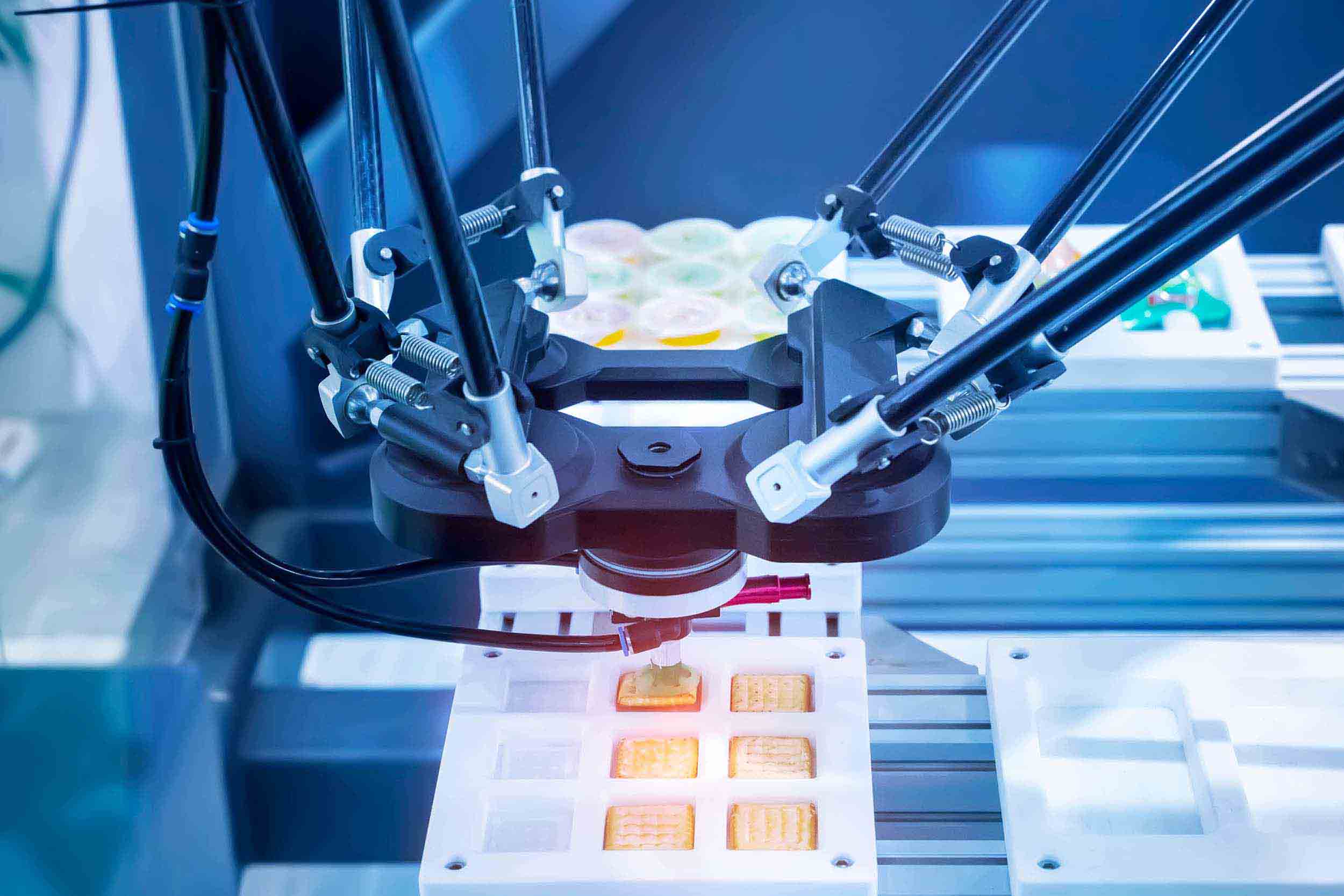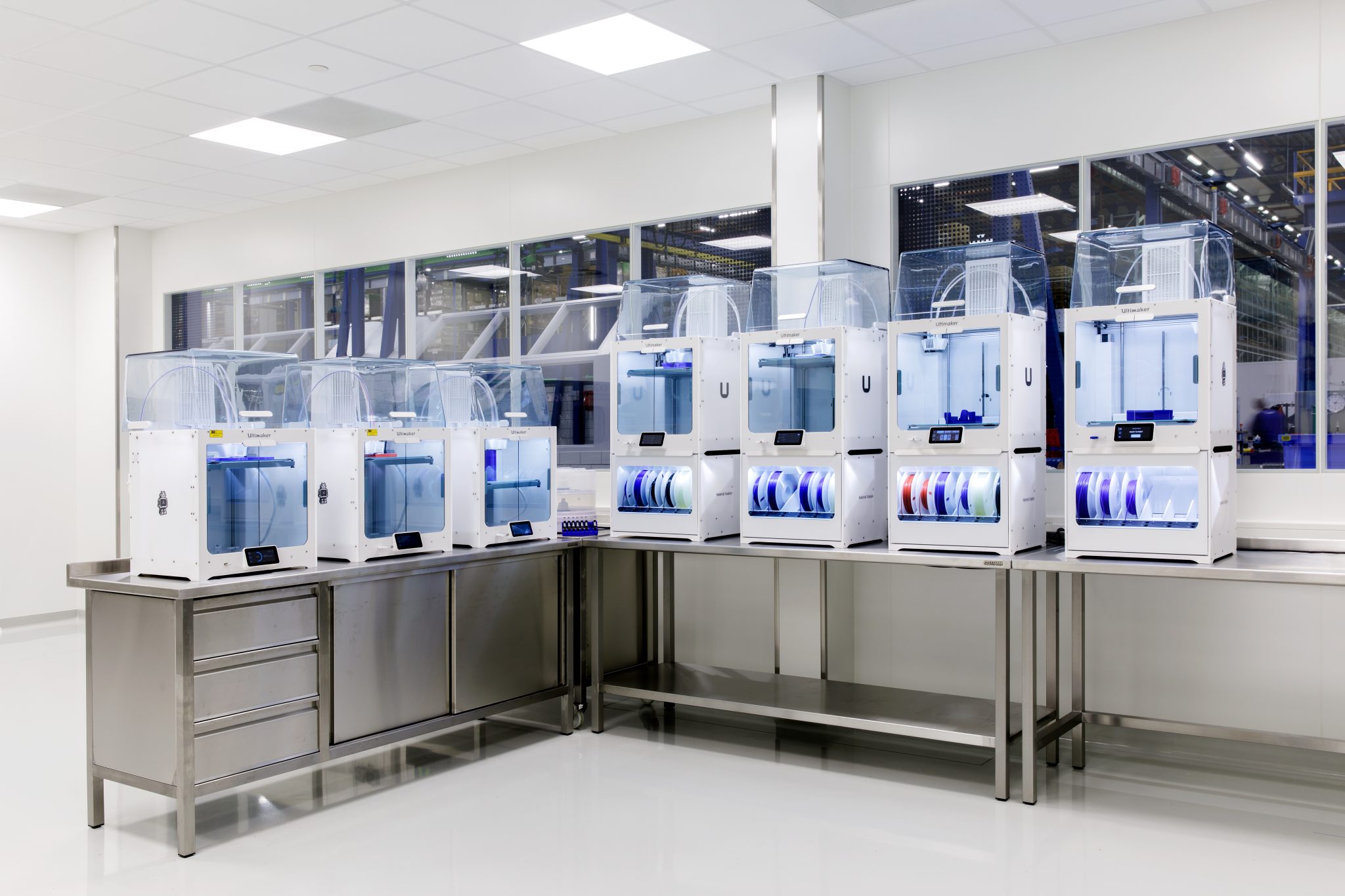Dutch 3D printing firm Oceanz has been awarded the European Food Grade certification EC 1935/2004. The certification means Oceanz’s materials, Untreated PA12 Food Grade, Polished PA12 Food Grade, and Full Finished PA12 Food Grade, are suitable and safe for use in the 3D printing of food applications.
EC 1935/2004 is the European law for materials and articles that come into contact with food, and compliance is monitored by the Dutch Food and Consumer Product Safety Authority (NVWA).
“The new Food Grade options at Oceanz 3D printing show even more that Additive Manufacturing is a very mature process,” said Erik van der Garde, CEO at Oceanz. “3D printing technology has gained momentum and has reached a higher level.”

3D printing in the food tech industry
Applying Additive Manufacturing within the food technology industry has a number of advantages, such as the production of custom parts and complex or organic shapes, alongside the enabling of rapid development form prototypes to functional parts. In addition, 3D printing facilitates small stocks, all of which are attractive benefits for food-related applications.
In March, international industrial equipment supplier ERIKS scaled up its 3D printing capabilities, through desktop 3D printer provider Ultimaker, to aid in attaining FDA compliances to allow it to create food-safe 3D-printed parts that can be used globally. ERIKS’ Clean Manufacturing Facility is EC1935/2004 compliant for its 3D production for the food tech sector.
Meanwhile, a partnership between The Danish Technological Institute (DTI), and Additive Manufacturing Technologies’ (AMT) produced components adhering to EU regulations on food and skin-contact related applications. As a result, AMT’s PostPro3D machines could now be used to create new opportunities for 3D printed parts, in areas where food or skin-contact is necessary, and cleanliness is essential.
“The increase of Smart Industry within the food sector also leads to the emergence of smart factories with more machines and robots – developments that every company in the sector has to deal with,” van der Garde added. “Food companies will have to keep up with these technological developments. With the use of Additive Manufacturing, companies can now innovate even faster and meet the high standard of requirements.”
Last year, Campden BRI, a food and drink research organization based in the UK, conducted a study examining the capabilities and limitations of 3D printing technology with various types of food materials.

Oceanz’s Food Grade certification
The EC 1935/2004 certification requires that materials must not release ingredients into foods in amounts that could be hazardous to human health, could lead to an unacceptable change in the food’s composition, or could lead to a deterioration in the taste or odor of the food.
Oceanz 3D printing processes are designed to comply with this regulation as well as the EC directive 2023/2006 Good Manufacturing Process, which means its certified materials are safe for production with consumption purposes or coming into contact with food.
These processes are included in Oceanz’s quality system and validated by external accredited parties, with the company’s testing facilities adhering to government-mandated risk tolerances and approved substances. Tests can also be carried out for specific raw materials or circumstances, such as temperature.
The 4th annual 3D Printing Industry Awards are coming up in November 2020 and we need a trophy. To be in with a chance of winning a brand new Craftbot Flow IDEX XL 3D printer, enter the MyMiniFactory trophy design competition here. We’re happy to accept submissions until the 30th of September 2020.
Subscribe to the 3D Printing Industry newsletter for the latest news in additive manufacturing. You can also stay connected by following us on Twitter and liking us on Facebook.
Looking for a career in additive manufacturing? Visit 3D Printing Jobs for a selection of roles in the industry.
Featured image shows Oceanz’s 3D printing Food Grade process are certified to EC 1935/2004. Image via Oceanz.



